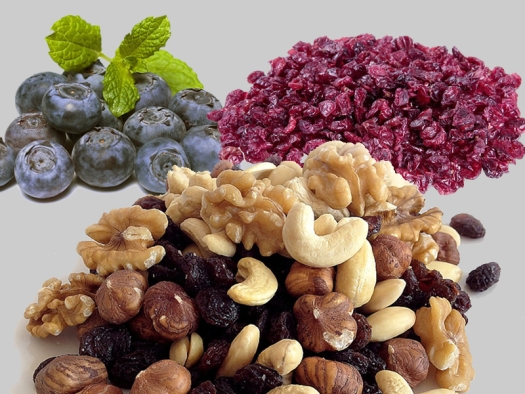BlueberriesCranberriesNuts.jpg

Low Carb Quality
If you’ve ever thought about trying a low-carb diet, this new study says it all.
The headline on Medscape reads: “For Weight Loss With a Low-Carb Diet, Quality Matters.”
The study looked at weight change in 123,332 people following a low-carb diet over 4 years. Their diets were categorized by food quality, based on diet questionnaires.
The results?
Those who followed a low-carb diet that had more healthy fats and plant protein with less refined carbohydrates experienced the most weight loss over 4 years.
Those who followed a low-carb diet that had more unhealthy fats, animal protein, and refined carbohydrates experienced the opposite: weight GAIN.
This study was conducted at the Harvard School of Public Health and published in JAMA Network Open (PMID: 38150249).
Endocrine Disrupting Chemicals EDCs
YIKES!! Here’s a study I wish wasn’t true.
The study found that the annual healthcare costs resulting from exposure to endocrine-disrupting chemicals (EDCs) were almost $250 billion in the U.S. alone.
EDCs are chemicals in plastics and also hide in:
- Flame retardants
- Food packaging
- Can linings
- Non-stick cookware
When these chemicals get into the human body, they disrupt our hormone systems and increase the risk for cancer, diabetes, infertility, preterm birth, and more The good news is that we have the power to make choices every day that minimize our exposure to EDCs.
We also have ways to support our body’s natural detoxification systems. Visit the health topic on Detoxification on the FAIM website to learn about detox solutions.
Protein
Check this out: The first study to look at the long-term effects of protein consumption during midlife!! Protein is essential for bone and muscle health, both of which can decline with age. But the results of this study say that “protein intake was significantly associated with higher odds of healthy aging.”
Plant-based protein was also associated with good mental health status and a lower risk of limitations in physical function. This was based on data from 48,762 women younger than age 60 who participated in the Nurses’ Health Study.
Want some simple ways to boost protein intake?
- Grab nuts instead of chips.
- Toss chickpeas on your salad.
- Add a high-quality protein powder to your smoothie.
- Spread nut butter on fruit
Berries
I’ve always loved berries, but this new research study cinches it!
Looking at a national sample of adults in the U.S., the research compared berry consumption with mortality rates over 8 years.
The results?
People who were considered “berry consumers” had a 21% lower risk of all-cause mortality than “non-berry consumers.” (PMID: 38184200.)
Also, more specifically:
- Cranberries supported heart & metabolic health
- Blueberries supported respiratory health
Berries are a rich source of antioxidants and also contain fiber, vitamins, and minerals that support health.
Pro tip: Frozen berries are equally nutritious and an excellent option when fresh berries aren’t in season!
References
Liu B, Hu Y, Rai SK, Wang M, Hu FB, Sun Q. Low-Carbohydrate Diet Macronutrient Quality and Weight Change. JAMA Netw Open. 2023;6(12):e2349552. Published 2023 Dec 1.
Trasande L, Krithivasan R, Park K, Obsekov V, Belliveau M. Chemicals Used in Plastic Materials: An Estimate of the Attributable Disease Burden and Costs in the United States. J Endocr Soc. 2024;8(2). Published 2024 Jan 11.
Ardisson Korat AV, Shea MK, Jacques PF, et al. Dietary protein intake in midlife in relation to healthy aging – results from the prospective Nurses’ Health Study cohort. Am J Clin Nut. 2024. Published 2024 Jan 17.
Zhang L, Muscat JE, Chinchilli VM, Kris-Etherton PM, Al-Shaar L, Richie JP. Consumption of Berries and Flavonoids in Relation to Mortality in NHANES, 1999-2014. J Nutr. Published online January 5, 2024.


